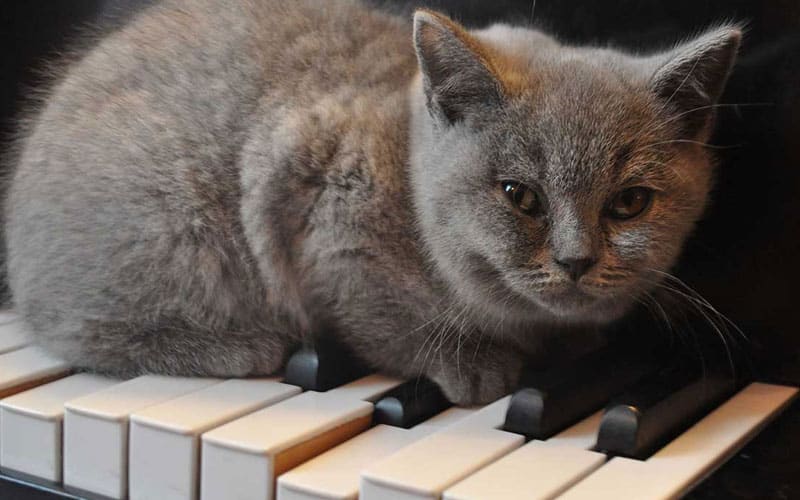Blindly following teacher or doing our own thing? Do we have a say when it comes to interpretation? Could our opinion of how a piece should go have merits?
For Pianists and Other Musicians.
We all wanted to become virtuoso pianists at one point or another in our lives. We couldn’t go to sleep thinking about it, we romantically gazed at the stars in anticipation, we unsuccessfully tried to play the “cadenza” of Chopin’s first Ballade at gatherings, we wept listening to our favorite pianist and we all ate spaghetti Bolognese; sorry, I meant to write we all went to piano recitals; I was thinking about my lunch just then.
We all did things to succeed in becoming a virtuoso. However, we knew that desire wasn’t enough in achieving our goals. We knew that we needed guidance, mentorship and somebody to know more than we did.
First, we needed a good teacher. So, we went to find a teacher. Some of us found our teacher by luck, for others, the teacher found them, and for others the teacher was introduced to them.
Then, we started piano lessons; we practiced at home and we went and played to the teacher. The teacher listened to us and humbly suggested corrections and improvements to our playing. We agreed with some suggestions and did our own thing in other.
Then, we slowly started forming an opinion of how good we were; we believed in ourselves. We thought that we could taste musical success and at times we considered that we were unique and special. We all secretly idolized our wonderful piano sounds. We liked our passionate chords and fast fingers when we played Richard Clayderman, and before we knew it, music was on the horizon.
This article is about the times that we disagree with our teachers. Since, most of us have disagreed with our instructors at one point or another. We all felt that we were right and our teacher was wrong.
But in music, before showing our concrete musical understanding to the world we need to learn the basics, such as what a teacher is and why we need one. So, first things first, here it goes:
What is a Teacher?
A teacher is an individual that teach us things that we don’t know. So, if you already know something in piano, that’s fine, the teacher just repeated it. But the duties of a teacher do not stop there. A teacher is not only there to repeat things that we already know but also to sense things that we cannot sense at the time. And more importantly to stop us getting ahead of ourselves and teach us the foundations of how to play the things we do. Remember, that it’s natural to not always understand what your teacher is on about; you are not meant to always comprehend things. You might just have to wait for a while until you mature musically and then you can come back and have your say. And, who knows, you might become a great teacher as well.
What is a Good Teacher?
- A good teacher can teach all levels of pianists; from beginners to the more polished ones.
- A good teacher allows you to give your own interpretation within the dictated limits of a piece.
- A good teacher can lie to you in order to push you to achieve more.
- A good teacher will tell you that you already are a good pianist with potential.
- A good teacher is not a medium, so he would never discourage you or proclaim your future.
- A good teacher is a better teacher than you.
- A good teacher is humble enough to accept defeat.
Regarding 1, very often I hear from students that their teacher cannot reach their low or high level of performance. They believe that some teachers are meant to teach refined pianists who already possess strong technique and some other teachers are to teach pianists that need improvement in their technique. Others students believe that their teacher is good no more for them and they have learned everything from them (how is that even possible?). Well, I am an avid believer that you can always learn new things from a teacher no matter how high or low his experience is; you may learn some negative or some positive things. Have you ever experimented by asking an inferior teacher/pianist to you to give you a piano lesson? Well, I have, and the experience is enlightening. Believe me, you can always learn.
Regarding factor 2, a good teacher is not a dictator and won’t try to make all his students sounding alike. He will strive to understand what you actually want to say with your unique interpretation but will also try to restrain any superfluous musical views and eccentric interpretational choices. He will also try not to strongly propagate his own learned way of playing the piano, because he knows that no teacher’s opinion is the only one that is right; otherwise we would only need one piano teacher forever.
Regarding 3 and 4, yes, a good teacher can be a good liar; but a “white” liar if you may. The last thing you want to face when you desperately want to become a soloist is a reality check from your teacher. The good teacher would definitely know if you can make it in the music business or not, however he would never be negative towards your potentials if he feels that you really want to make it; since he is not a medium.
That’s right. Regarding 5, your teacher is not a medium; nobody can proclaim your future as a pianist. Not even you, I don’t think. So, let’s not let others to put us down.
About 6, a good teacher naturally is a better teacher that you, I’m afraid; otherwise you wouldn’t need to experience the student-phase in your life and you would go straight to becoming a teacher. So, you need to always be alert when in his class. Hopefully you didn’t choose a teacher that is worst a teacher than you, did you?
And of course, in 7, a good teacher would be humble enough to accept that he was wrong, to accept responsibility and grant that he made wrong judgements and that you were right; he is human after all.
Are We Allowed to Disagree with Our Teachers?
To a certain extent, yes; you are allowed to disagree with your teacher but only if you possess the information to identify “why” your teacher is wrong. But before you disagree, you need to ask yourself a few questions, such as:
- Are you sure you are absolutely right and your teacher is utterly wrong?
- Is your musical knowledge strong enough so as to prove that your teacher’s opinion is wrong?
- Does your teacher had many years of studies and experience or do you have more?
- Did you choose an instructor with more knowledge than you to teach you, or did you choose an instructor with less knowledge than you to teach you?
- Are you a student that went to learn from the teacher or went to teach the teacher?
If some of those “tactful” questions above make you feel uncomfortable and cranky then perhaps it’s time to think carefully before strongly disagreeing with your teacher. You need perhaps to evaluate how much you know. It’s great if we are challenging everything and all in life before we accept things, but sometimes we just have to be patient in order to understand things that are beyond our current capacities. Sometimes we have to say “yes, I agree” and “yes, I understand”, even if you don’t fully, because sometimes in life we are just not yet ready to evaluate things. So, let’s be patient. And more importantly let’s not always be a spirit of contradiction. A child, for instance, doesn’t know what is right or wrong sometimes, because it doesn’t have the knowledge and the experience to sense and to assess; so, the parent must be bold sometimes and just say, “don’t fall over”, “don’t walk on the edge of the cliff”, “don’t poke your brother in the eye”, “don’t ask “WHY” all the time”.
Can We be Right and Our Teacher Wrong in His Musical Judgement?
Unlikely, but yes, it could happen. For instance, here are some juvenile reasons:
- When you played a note or a chord correctly that your teacher thought is a different one.
- When you played a rhythmical passage neatly when your teacher suggested the wrong rhythm.
- Generally, when the composer indicated something and your teacher thought it was something else.
- When you played the Hammerklavier and your teacher thought you played the “jingle bells”.
Reasons like the above are mostly trivial and can be corrected even from a non-musician. You have to appreciate that music is a subjective art to a certain extent, so you must avoid dogmatic views. That’s why every pianist is unique; because his personal view of a piece will shine through at the end. You may understand that it’s very difficult to say if your teacher is 100% wrong and you are 100% right; except in very clear cases, such as when the composer wrote that you must play pianissimo and your teacher insisted that you must hit the piano with baseball bat. But when it comes to things like:
- How loud is loud?
- How fast is fast enough?
- How slow is too slow?
- How piano or mezzo piano a certain passage is?
- How should you build momentum in a passage?
- How to deliver a climactic sequence?
- How to articulate a passage?
- How to project your sound in a certain concert hall?
Or, how this and that, then I’m afraid it comes down to your uniqueness, to your personal taste and to your teacher to try and explain all those subjective things. That’s why artists like the legendary Horowitz came so close to our hearts, because they proved that there were no musts and absolutisms in musical interpretation. They also showed to us that a composer can be reflected and even championed on any pianist’s individual views.
So: Stop becoming a teacher in a teacher’s class if you are not one just yet, and start using your ears more.
Is your teacher right or wrong sometimes, it doesn’t really matter. In life, everything is going to balance out at the end. So, carry on practising and don’t stop learning, because one day you may realize how little you know after all.
© Nikolaos Kokkinis – 8th May 2012






